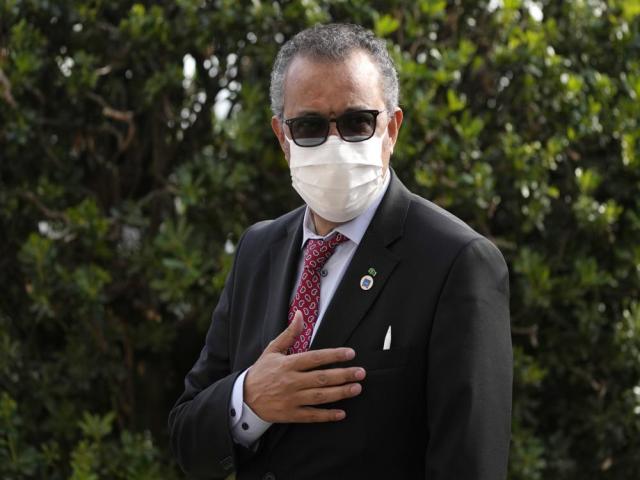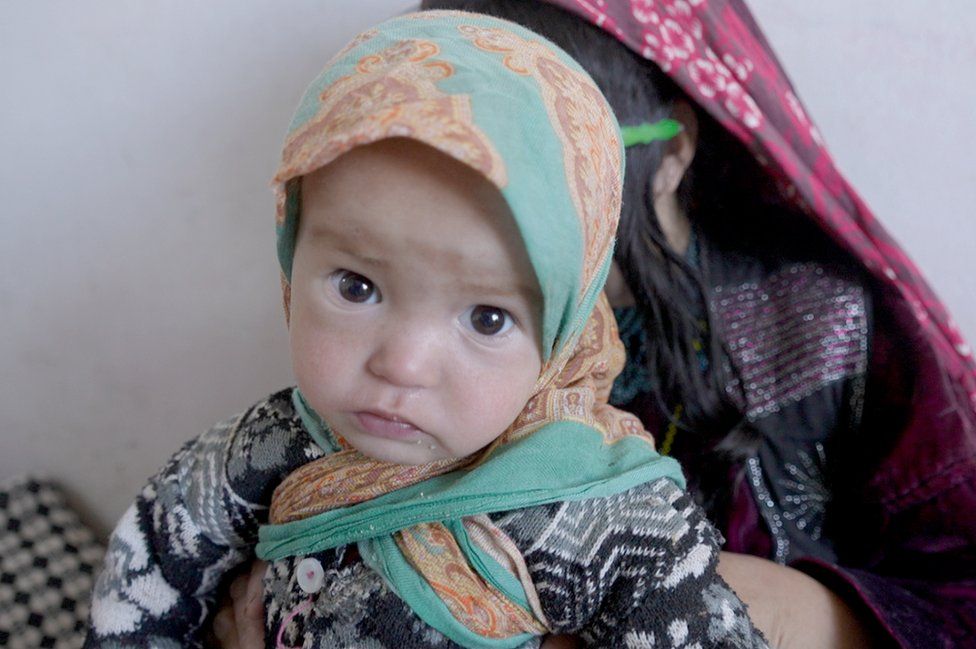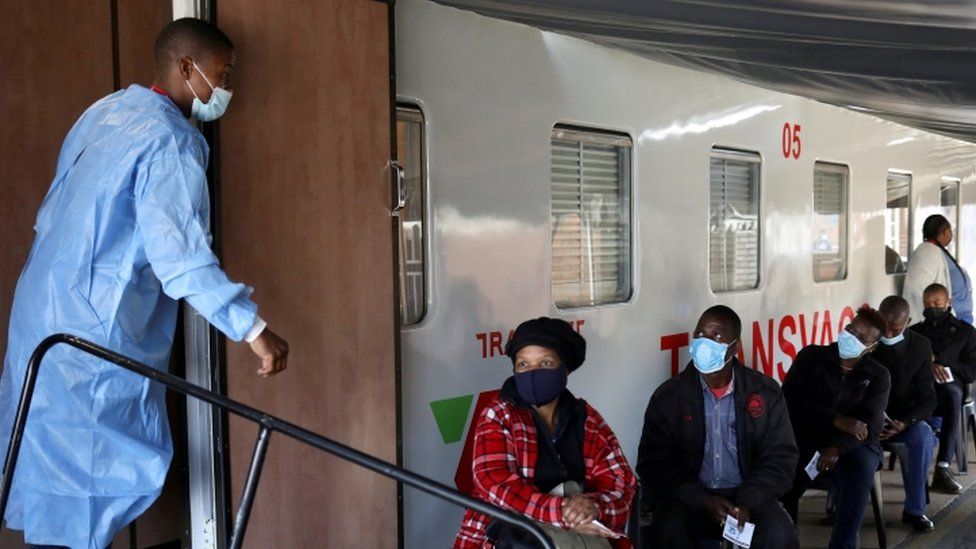WHO chief worried about ‘tsunami’ of omicron, delta cases

Two years after the coronavirus first emerged, top officials with the U.N. health agency cautioned that it’s still too early to be reassured by initial data suggesting that omicron, the latest variant, leads to milder disease. First reported last month in southern Africa, it is already the dominant variant in the United States and parts of Europe.
And after 92 of the WHO’s 194 member countries missed a target to vaccinate 40% of their populations by the end of this year, Director-General Tedros Adhanom Ghebreyesus urged everyone to make a “new year’s resolution” to get behind a campaign to vaccinate 70% of countries’ populations by the beginning of July.
According to WHO’s figures, the number of COVID-19 cases recorded worldwide increased by 11% last week compared with the previous week, with nearly 4.99 million newly reported from Dec. 20-26. New cases in Europe — which accounted for more than half of the total — were up 3% while those in the Americas rose 39% and there was a 7% increase in Africa. The global gain followed a gradual increase since October.
“I’m highly concerned that omicron, being more transmissible (and) circulating at the same time as delta, is leading to a tsunami of cases,” Tedros said at an online news conference. That, he said, will put “immense pressure on exhausted health workers and health systems on the brink of collapse.”
WHO said in its weekly epidemiological report that the “overall risk” related to omicron “remains very high.” It cited “consistent evidence” that it has a growth advantage over the delta variant.
It noted that a decline in case incidence has been seen in South Africa, and that early data from that country, the U.K. and Denmark suggest a reduced risk of hospitalization with omicron, but said that more data is needed.
WHO’s emergencies chief, Dr. Michael Ryan, underlined that note of caution. He said it will be important in coming weeks to “suppress transmission of both variants to the minimum that we can.”
Ryan said that omicron infections began largely among young people, “but what we haven’t seen is the omicron wave fully established in the broader population. And I’m a little nervous to make positive predictions until we see how well the vaccine protection is going to work in those older and more vulnerable populations.”
WHO officials didn’t offer specific comments on decisions by the U.S. and other countries to reduce self-isolation periods. Ryan said “these are judgement calls that countries make” — taking into account scientific, economic and other factors. He noted that the average incubation period to date has been around five to six days.
“We need to be careful about changing tactics and strategies immediately on the basis of what we’re seeing” about omicron, Ryan said.
Tedros renewed longstanding warnings that “ending health inequity remains the key to ending the pandemic.” He said that missing the target of getting 40% of populations vaccinated this year “is not only a moral shame — it cost lives and provided the virus with opportunities to circulate unchecked and mutate.”
Countries largely missed the target because of limited supply to low-income nations for most of the year and then vaccines arriving close to their expiry date, without things such as syringes, he said.
All the same, “I still remain optimistic that this can be the year we can not only end the acute stage of the pandemic, but we also chart a path to stronger health security,” Tedros said.
COVID-19 outbreaks in Mississippi nursing homes have almost doubled in the past week, an indicator that the state is likely heading into another major surge of virus cases and hospitalizations, a top health official said Wednesday.
“We’re in the midst of a peak of transmission that we’ve never seen, most likely, this whole pandemic,” Mississippi State Health Officer Dr. Thomas Dobbs said during a Wednesday news conference.
The state health officer said people who test positive or are exposed should take precautions and quarantine for at least five days, per Centers for Disease Control and Prevention guidelines.
“Don’t perpetuate the chain of transmission,” Dobbs said. “This is really a ‘love thy neighbor’ sort of moment, and ‘love thy family,’ also. Stay home.”
There were 63 outbreaks in Mississippi nursing homes Monday, nearly twice the number of nursing home outbreaks reported in the state last week, state epidemiologist Dr. Paul Byers wrote Wednesday in a memo to Mississippi hospitals and health care providers. There were 8,344 new COVID-19 cases reported last week, an 80% increase from the week before. Byers said a growing proportion of Mississippi cases are fueled by the omicron variant of the virus.
“We really are in the fifth wave now of COVID for Mississippi,” Byers said during the news conference.
Last week, the omicron variant accounted for about 13% of all samples sequenced in the state, up from about 8% in the previous week. Byers said these numbers likely underrepresent the impact of omicron on the state because some samples collected recently are still pending sequencing. The omicron variant is significantly more infectious than the delta variant.
A total of 400 people were hospitalized with a confirmed coronavirus infection in Mississippi on Monday, compared with 239 people on Christmas Eve, the Department of Health reported.
Jim Craig, senior deputy for the Mississippi Department of Health and director of health protection, the shortage of health care workers continues to be a concern for health officials. Lack of staff prevents hospitals from opening all available beds to treat patients.
“It is becoming increasingly difficult for our smaller community, county hospitals to transport patients to some of our larger centers. ... It all plays back to the staffing issue,” he said.
Health officials said Tuesday that 48% of Mississippi residents were fully vaccinated, and 29% had received a booster shot. About 63% of people nationwide are fully vaccinated, according to Johns Hopkins University.
With the surge in new virus cases, there has also been a surge in demand for testing. Dobbs said the state is expanding the number of available testing sites, and asked residents to be patient.
“There is testing available, it’s just not on-demand like we’ve had before,” he said. “... That convenience might not be quite as big as it has been. But you know, this is a moment of phenomenally increased demand. So it’ll be a little bit of a challenge.”
Due to a surge in new confirmed coronavirus cases, the mayor of Mississippi’s capital city has ordered the closure of city hall and other offices.
Jackson Mayor Chokwe Antar Lumumba’s new executive order closing offices went into effect Wednesday. Only essential employees will continue to work in person, he said. The order will stay in place until at least next Wednesday.
“The infectious spread of COVID-19 through both the Delta and Omicron variants has continued and dramatically increased in the City of Jackson, with a corresponding increase in hospitalizations and death rate,” the mayor said in a statement. “The City of Jackson does not have the luxury of a wait-and-see approach to the continued threat.”

On the front line as Afghan children battle malnutrition and measles
- "Theres no space inside," shouts a beleaguered hospital worker as he tries to push back a frantic crowd of mothers and babies hoping to receive nutrition

N. Korea fires fresh missiles in response to US sanctions
- North Korea on Friday fired what appeared to be two short-range ballistic missiles in its third weapons launch this month

Fox News did not bother to air Monday nights meeting of the House
- Ralf Rangnick’s first game in charge of Manchester United ended in a 1-0 victory against Crystal Palace on Sunday.

Covid: South Africa punished for detecting new Omicron variant
- South Africa has complained it is being punished - instead of applauded - for discovering Omicron, a concerning new variant of Covid-19.